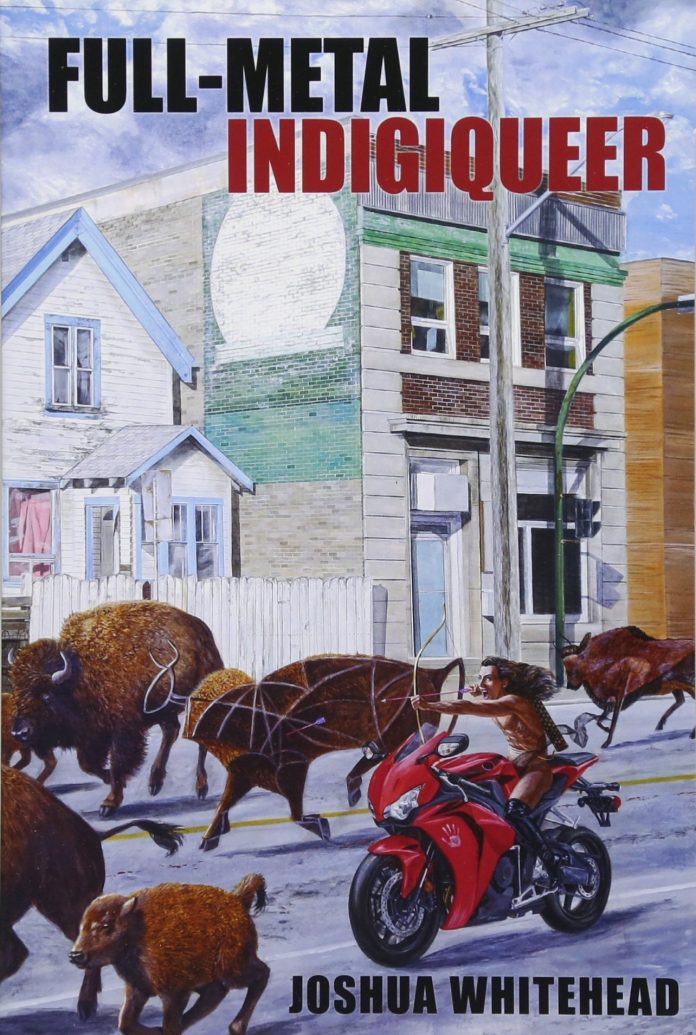By: Alison Wick, Arts Editor
I often find poetry to be a difficult medium of literature to digest. I think, as for many of us, this largely comes from an understanding that poetry is not really meant to be understood or read for fun. As we are force-fed Shakespeare and Milton throughout high school, we learn that poetry is not something to have fun with but rather something to sit in the classroom and analyze. It’s an ivory-tower pursuit wholly detached from the real world.
However, most writers of poetry will tell you, and books like full-metal indigiqueer will show you, the opposite.
Joshua Whitehead’s full-metal indigiqueer is poetry like you may have never seen before. It is as much a visual piece of art as it is a literary piece of poetry. The book opens with “birthing sequence,” 15 pages that read like a comic flip book as a white dot grows to reveal what feels like binary code. The page becomes filled by a pattern made with colons and spaces, and the word “H3R314M” at the centre. You then turn the page and are thrown right into Whitehead’s visually and linguistically complex book of poetry with the poem “i no bo — d[i]y” which explores the idea of authenticity and the complexity of names.
This collection of poems is created through Whitehead’s Indigequeer character Zoa, who, as the book’s back cover puts it, “brings together the organic (the protozoan) and the technological (the binaric) to re-beautify and re-member queer Indigeneity.” Whitehead rethinks the construction of the English poetry canon by reimagining Indigenous Peoples and characters at the centre or these works — disrupting, changing, and reclaiming narratives — through his two-spirit trickster character, Zoa. This was a large reason he created the trickster, to create a character that would be able to shapeshift and travel between, through, and within these texts. Shakespeare, Milton, and Dickens are some of the names and dead celebrities of poetry that Zoa breaks apart and rearranges.
Although the book is technically a collection, the poems are still all intimately connected through the sense of disruption and revisionism. The cyberpunk poems all seek to dissect and break down their topics — right down the words on the page. Numbers are mixed with letters, single words are cut up and spread out across the page, and colons are used to create code-like patterns as the book downloads the poems onto the page.
A visually striking and thematically challenging book, I highly recommend full-metal indigiqueer to anyone who enjoys exploring new kinds of poetry and anyone interested in giving the genre another try. There is much more to poetry than roses by any other names.
Last year full-metal indigiqueer was a finalist in the category of Most Significant Work of Poetry in English at the Indigenous Voices Awards 2018 Gala. This year Whitehead is a finalist again, this time in the Category of Best Published Prose with his second book and first novel Jonny Appleseed. The 2019 Awards gala will be happening at UBC on June 4 and is open to the public.




